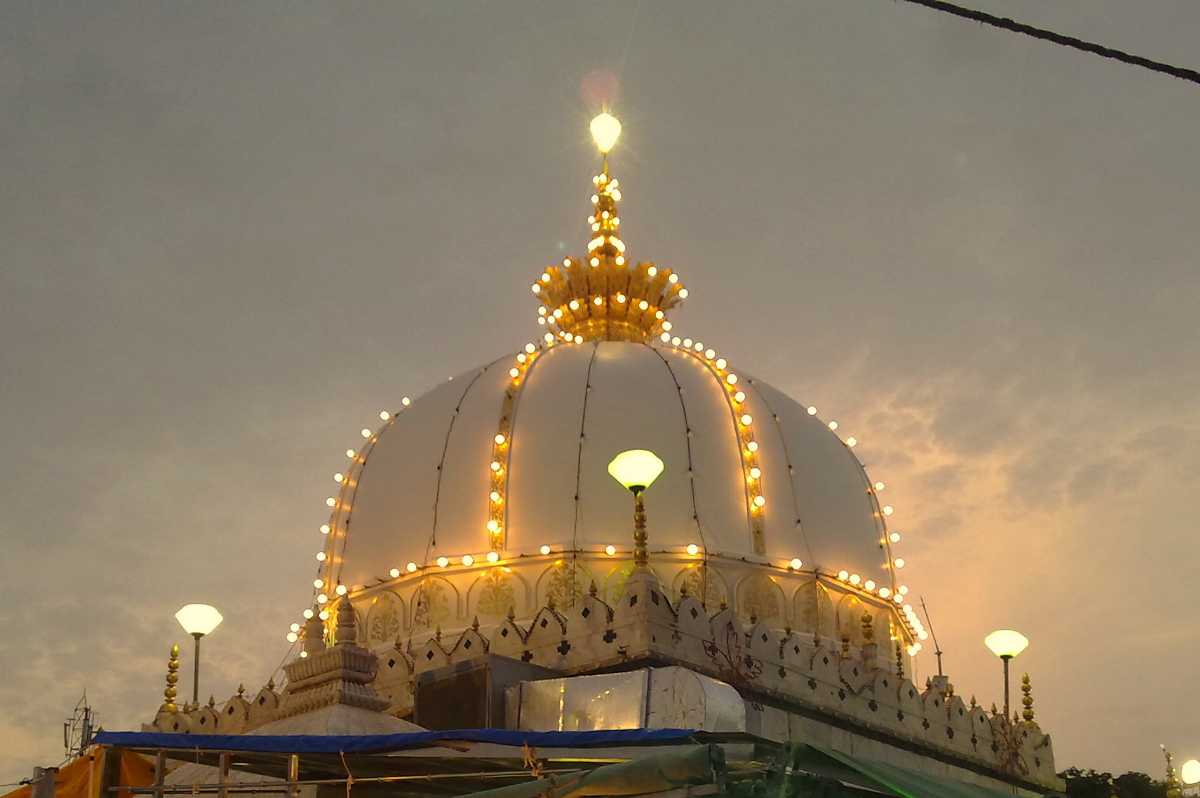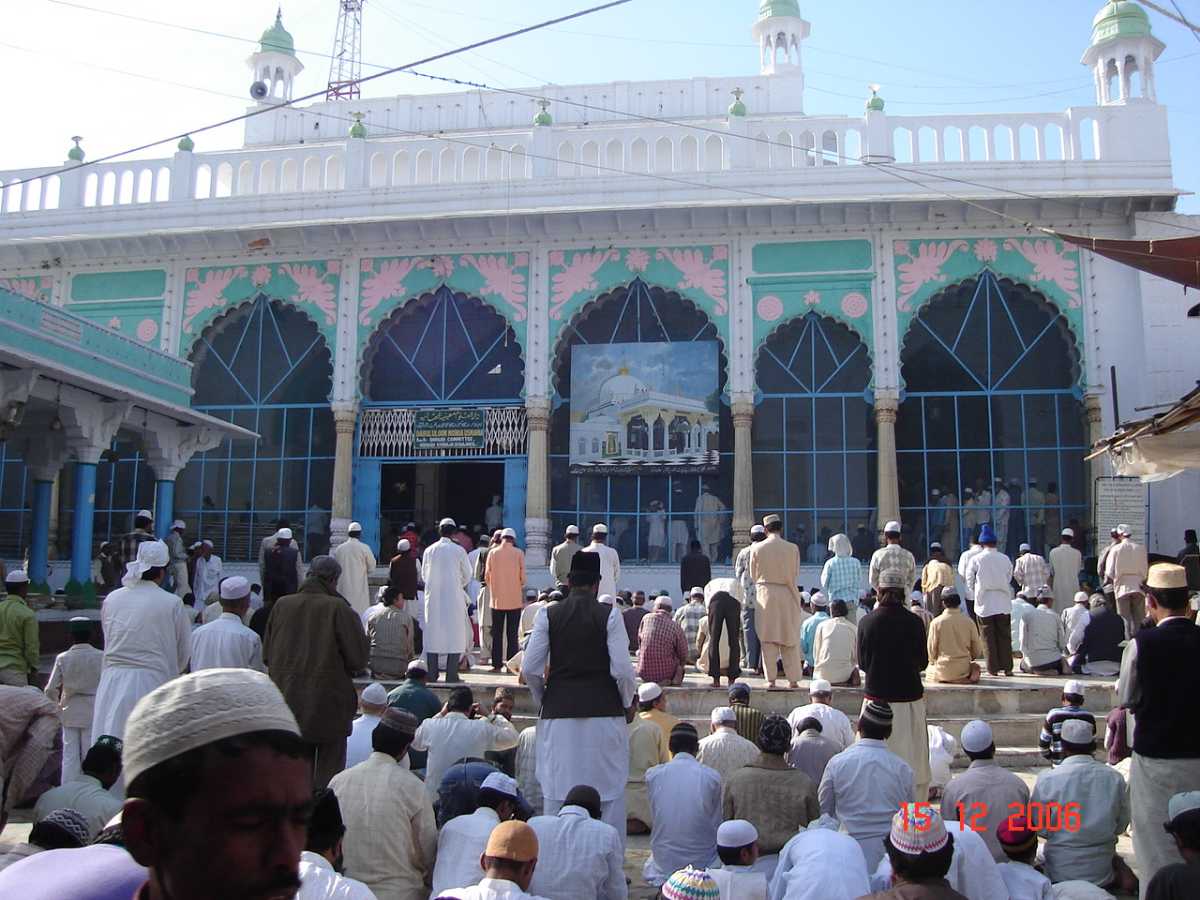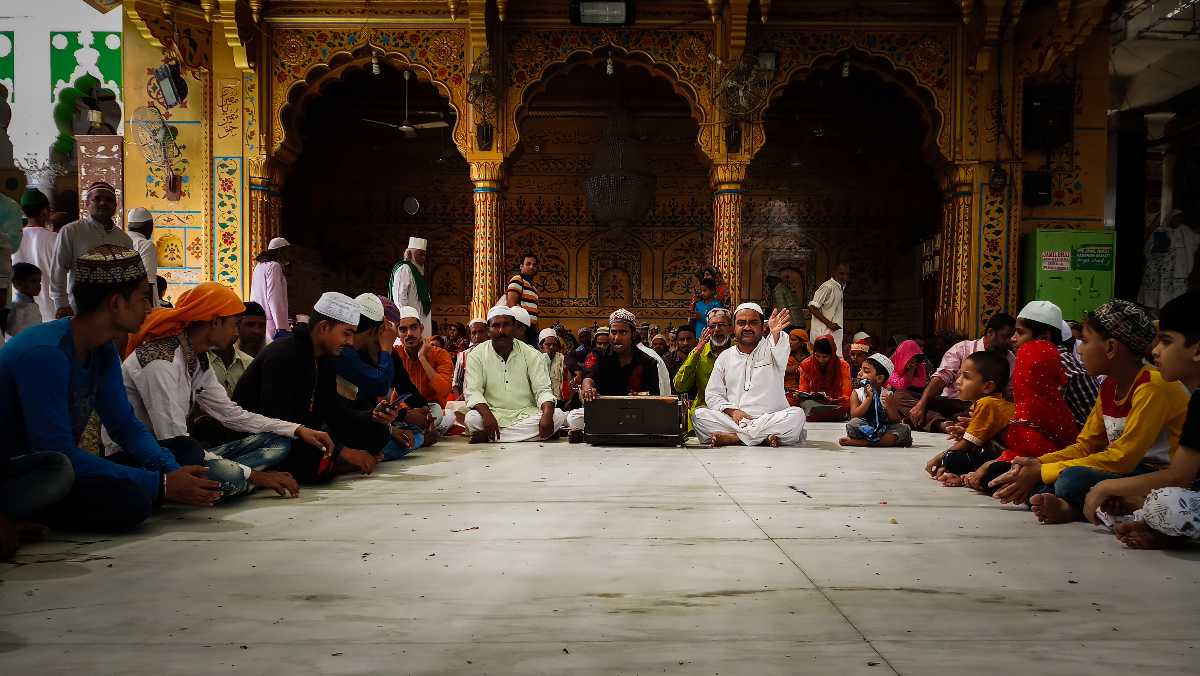Urs Festival
Tags : Fairs & Festivals
Urs Festival 2024 Dates : 8th January, 2025
Urs Festival, Ajmer Overview
The famous Ajmer Sharif shrine in Rajasthan witnesses an annual Urs celebration on the death anniversary of the Sufi saint, Khwaja Moinuddin Chishti, popularly known as Khwaja Gharib Nawaz, the founder of Chishti Sufi order in the Indian Subcontinent. Thousands of devotees having backgrounds in all castes and religions, from India and abroad, visit the shrine of Moinuddin Chishti to pay homage to the saint during the Urs festival.
The Khwaja Gharib Nawaz Dargah, located in Ajmer, fills with the fragrance of incense and sights of devotees paying respect to the saint’s grave by offering ceremonial chadars over it. The Candles are lit, prayers are made, and qawwalis are performed all night as parts of the six-day-long Urs festival. Celebrated in Rajab, the seventh month of the Islamic lunar calendar, the Urs festival is a major occasion for devotees to do Ziyarat of the sacred shrine.
Read More on Urs Festival
Month of the Urs Festival
How is the Urs Festival Celebrated – Revering the Gharib Nawaz

source
Ziyarat

source
As is among the Muslim communities across the globe, thousands of devotees do Ziayarat or visiting of the Khwaja Gharib Nawaz Dargah in Ajmer every year. It is considered most auspicious to perform Ziyarat of the shrine during the Urs festival. People of all faiths and backgrounds come to the holy shrine to seek blessings and witness the grandeur of the Urs festival.
Flag Hoisting Ceremony
A grand ceremony takes place before the first of the six days of Urs festival. A large flag is hoisted in the vicinity of the dargah, amidst prayers and chants by the devotees, announcing the beginning of the Urs festival. People gather in thousands even for this opening ceremony of the festival.
The Opening of the Jannati Darwaza
A large gate with silver coating, located in the dargah complex, is known as the Jannati Darwaza. As the belief goes, if a person crosses this gate in a certain manner, taking a defined route back and forth, and performs it for seven consecutive times at a stretch, he secures his place in heaven. The Jannati Darwaza is opened during the first day of the Urs, and the devotees tie threads on it, asking for their wishes to be fulfilled.
Qawwali Performance
source
Qawaali concerts are carried out throughout the nights of the days of Urs celebration. Revered Qawwali performers are called for the occasion, who spellbind the people with their Sufi music. The songs performed in Qawwali are either of the Hand forms, which is sung in praise of the Almighty, or Naat form, which is sung in praise of the Prophet Muhammad, or songs praising the Sufi saint, Khwaja Gharib Nawaz. People enjoy the enchanting Qawwali session, which is believed to be a source of seeking blessing for the devotees.
Candle Lighting Ceremony
The Khadims of the shrine takes the duty of reading the shijra at the shrine. Moreover, candles are lit in remembrance of Khwaja Gharib Nawaz by the Khadims. Before being lighted, the candles are touched at the heads of everyone present in the dargah to spread blessings of the saint to everyone.
The Asceticism of the Qalandars
A major part of the Urs festival at Ajmer Sharif dargah is the performance of the Qalandars. Qalandars are equated in their mannerism of worship with the Nagas or the Aghoris of their respective traditions. The Qalandars are supposed to be their Muslim counterparts, having renounced the world and the sharia. These ascetics perform their ritualistic dance, known as Dhamal. Also, they can be found indulged in self-flagellation and other extreme ascetic practices like piercing their cheeks with metals.
Chhati Sharif
Chhati Sharif is the sixth and the last day of the Urs festival. It is believed to be the most auspicious of all days of the festival, owing to the belief that Khwaja Moinuddin Chishti locked himself in a room and prayed continuously for six days before leaving his mortal body on the sixth day. The khadims read the Shijra at the shrine, and prayers are made.
Badhaawa
On the last day of the festival, a song of praise, known as Badhaawa, is performed at the main entrance, before the conclusion of events. Badhaawa is a type of recitation which is accompanied only by the clapping of hands, and no musical instruments are used. The Badhaawa was composed by Syed Behlol Chishty who was an ancestral figure of the present-day Khadims of the shrine.
Firing of Canon
The Qul ceremony marks the conclusion of the Urs festival. Following it, Fatiha is read for the Sufi saint. The events of Urs festival finally comes to an end when a cannon is fired to announce the same.
Bada Qul

source
A few days after the conclusion of six days and the Chhati Sharif, a bada Qul is performed for the final time. With the Bada Qul, the devotees return to their homes, having witnessed the complete turn of events at the Urs festival.
The Urs festival at Ajmer Sharif is one of the significant events of the state of Rajasthan, and that of the Muslims community of India and adjoining countries of the Subcontinent. Khwaja Moinuddin Chishti is a highly revered figured not only among the followers of Islam but also among Hindus and followers of other religions. The Urs festival at Khwaja Gharib Nawaz shrine, marking the anniversary of the saint’s absorption with the Almighty, happens to be an event spreading peace, sanctitude, and brotherhood among people of different communities.
